Dreamforce: "Intelligence as the Fourth Industrial Revolution"
By Natalie Evans
November 10, 2017
Dreamforce 2017, low-code, Marc Benioff, myEinstein, myIoT, myLighting, mySalesforce, myTrailhead, Quip, Rafael Alenda, Salesforce, Sarah Franklin
On Monday, over 170,000 Salesforce trailblazers descended upon San Francisco, taking over the area around Moscone Center to attend Dreamforce 2017. The theme of the conference was intelligence as the fourth industrial revolution. This is seen in how Salesforce weaved customization, automation and intelligence throughout its products.
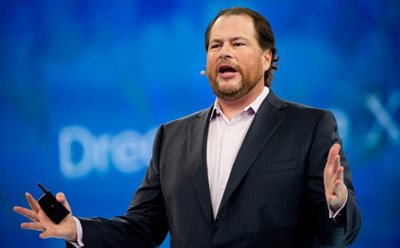 “This fourth industrial revolution is all around us, and I’ve seen that in our customers and in their stories,” Benioff said during his opening keynote session. “These success stories are being driven by state of the art technology that is all around us. What I’m most inspired by is all the innovation coming from companies tapping into these technologies.” To go in depth on customer success in the fourth industrial revolution I highly recommend you watch this Salesforce Video.
“This fourth industrial revolution is all around us, and I’ve seen that in our customers and in their stories,” Benioff said during his opening keynote session. “These success stories are being driven by state of the art technology that is all around us. What I’m most inspired by is all the innovation coming from companies tapping into these technologies.” To go in depth on customer success in the fourth industrial revolution I highly recommend you watch this Salesforce Video.
Salesforce unveiled a slew of updates across its platform focusing on 3 key initiatives, customization, low-code orchestration, and using data as intelligence. It’s products myTrailhead, myEinstein, myLightning, mySalesforce, myIoT and the core Salesforce platform all received feature upgrades at Dreamforce. With the prefix of “my” it denotes the focus customization, many of these apps and platforms now can be corporately branded.
Low-code orchestration, which allows business users to build or customize applications without coding, will help open up the Salesforce platform to even more users. Turning data into intelligence will, in turn, help users get more out of the Salesforce products they're using.
Updates Introduced at Dreamforce 2017
myTrailhead - Salesforce has expanded their business education and skill-building which takes place on their Trailhead learning platform. Its latest release myTrailhead, allows firms to add their own content and branding to further customize the platform.
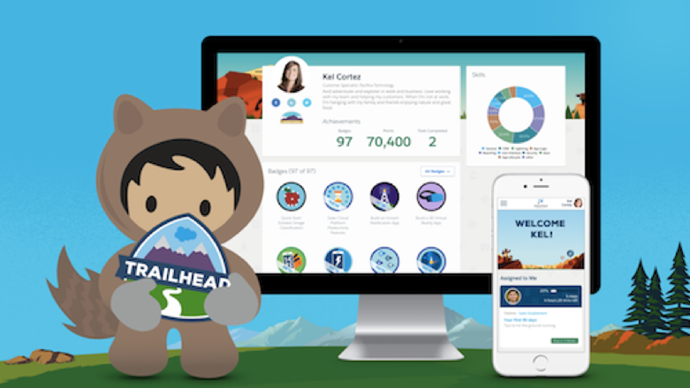
In addition to adding brand-specific imagery, companies can customize existing Trailhead content, or simply add their own training materials to help their employees build more company- or industry-specific skills, a press release said. Private content is added with the help of a setup guide called Trail Maker, while users have customizable profiles and can be motivated by gamified leaderboards as well.
“In this digital age, continuous learning is more critical than ever to keep pace with rapid technology changes and the increasing velocity of business,” said Sarah Franklin, SVP Developer Relations and GM of Trailhead, Salesforce. “myTrailhead fosters a culture of learning, which drives both employee and business success.”
The product comes with five new tools: Trail Checker, Trail Maker, Trail Mixer, Trail Tracker, and Trailhead Profile.
myEinstein - Einstein is artificial intelligence (AI) for Salesforce. The new myEinstein machine learning platform services introduced at Dreamforce will allow users of all skill levels to "build custom AI apps across Salesforce," a press release said. myEinstein is built on the foundation of two core services: Einstein Prediction Builder and Einstein Bots. Einstein Prediction Builder lets admins and business users build custom, AI models. Einstein Bots enable admins to build, train and deploy customized service chatbots with just clicks, the release said. These are both examples of intelligence in the Salesforce platform and the use of low-code development to provide a more tailored experience.
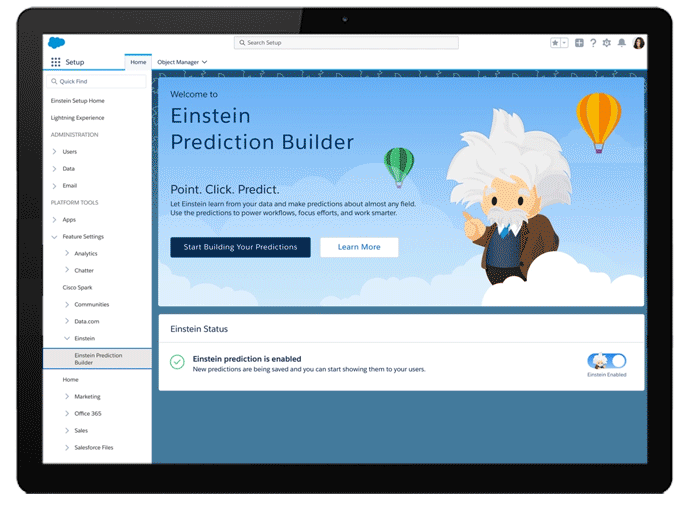
myLightning - Two years ago Salesforce introduced Salesforce Lightning, a component-based framework for application development and a reimagined user experience (UX).Continuing the customization theme is myLightning, the next phase of Salesforce's Lightning app development framework, in which companies can build deeper experiences in their apps and weave their brand throughout Lightning. For the App Builder portion, a new feature called Dynamic Pages will provide a custom experience for each user, depending on their data, according to a press release. Additional automation tools called Lightning Flow is a new wizard-based tool for building automated workflows which will also help streamline the user experience while performing the needed actions on an app.
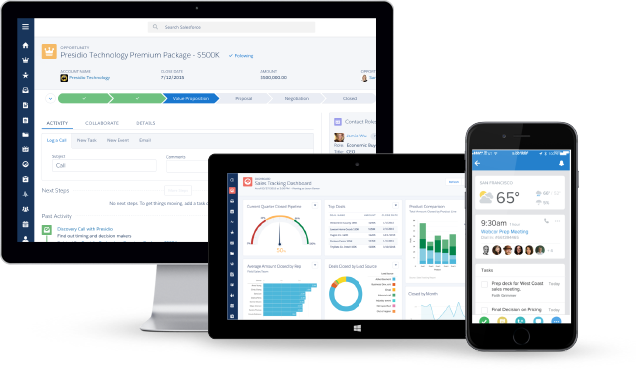
mySalesforce - Salesforce also announced mySalesforce, the next generation of its Salesforce mobile app. A custom-branded mobile and includes low-code development platform, that makes it easy for anyone to build and publish. It lets businesses build custom Android and iOS apps and list them directly in the App Store and Google Play Store. With its new listing wizard it speeds up publishing, with a simplified step-by-step instruction that allows the user to walk through publishing the app, even testing and configuring it beforehand, the release said.
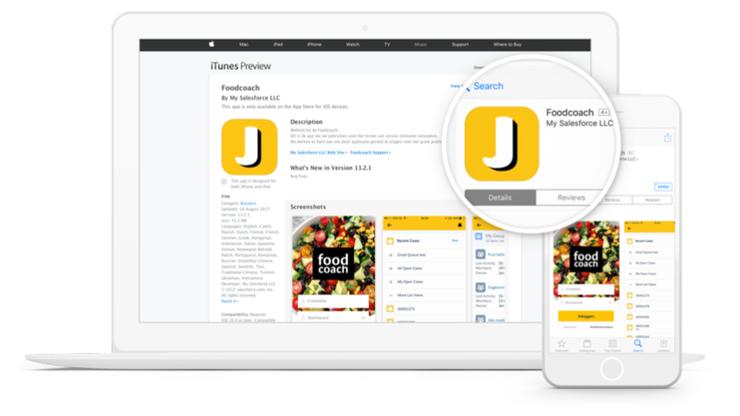
myIoT - As part of its next evolution to an IoT approach, Salesforce announced myIoT, which aims to help users build more intelligent customer experiences and be more proactive in using data to inform the customer relationship. Salesforce IoT Explorer, is the first major product and was just released in October of this year. This is another Salesforce product relying on low-code orchestration to democratize its services, a press release said. Users simply point and click to create rules-based automation for the connected devices in their organization. The goal is, by improving intelligence and customer context, sales professionals can more proactively engage customers at the proper point in the sales cycle.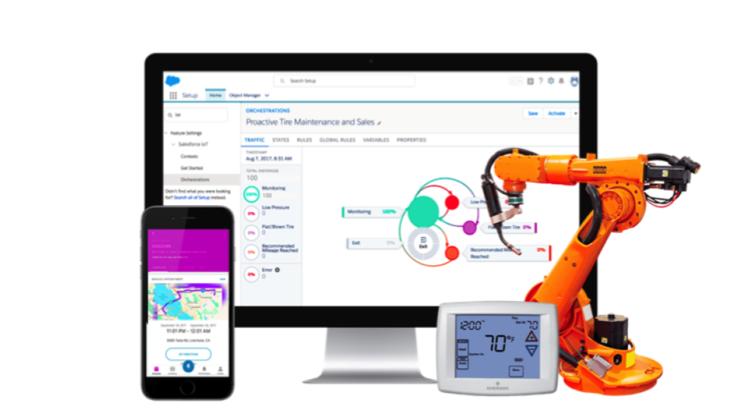
Quip Collaboration Platform - The company also announced the Quip Collaboration Platform, the first fruit of Salesforce's $750-million acquisition of team messaging and collaboration app Quip last year. The Quip Collaboration Platform is an answer to unified collaboration apps, such as Stride, Microsoft Teams, and Slack, that centralize a team's work and communication in one place. Rafael Alenda, Salesforce's Vice President of Marketing for Quip, said this release helps move Quip from a product to a platform.
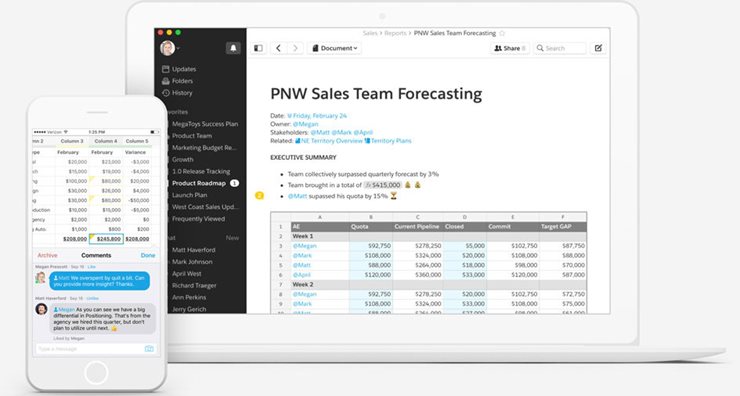
"This platform extends collaboration beyond docs and spreadsheets, and allows teams to collaborate around the apps and tools they use every day but don't put into a document," said Alenda.
The Quip Collaboration platform introduces dynamic pages called Live Apps, in which teams and users can embed anything from a Salesforce record to a poll, calendar, or full-blown native app into a Quip document to centralize work into one place.
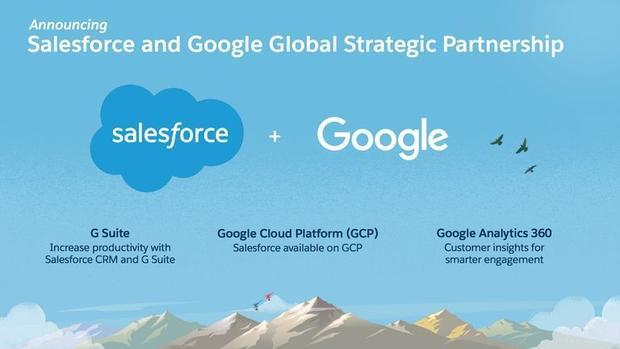
In a final announcement, Benioff also revealed the new global strategic partnership with Google to deliver smarter, more collaborative experiences for customers. The most significant is that Salesforce will integrate Google’s G Suite with multiple products and use Google Cloud Platform for international growth. The announcement is favorable for Quip, which will tie into Gmail, Hangouts and Google Calendar. Quip’s Live Apps will become embedded with Google Drive and Google Calendar with full Hangout integration. Data is shared as well with customer account details and information which can be used from Sales Cloud directly.

Natalie Evans
Natalie Evans has over 16-years in the tech industry and currently works as the event coordinator and tech reporter for CMS-Connected, keeping up-to-date on what's happening in and around the Content Management industry.